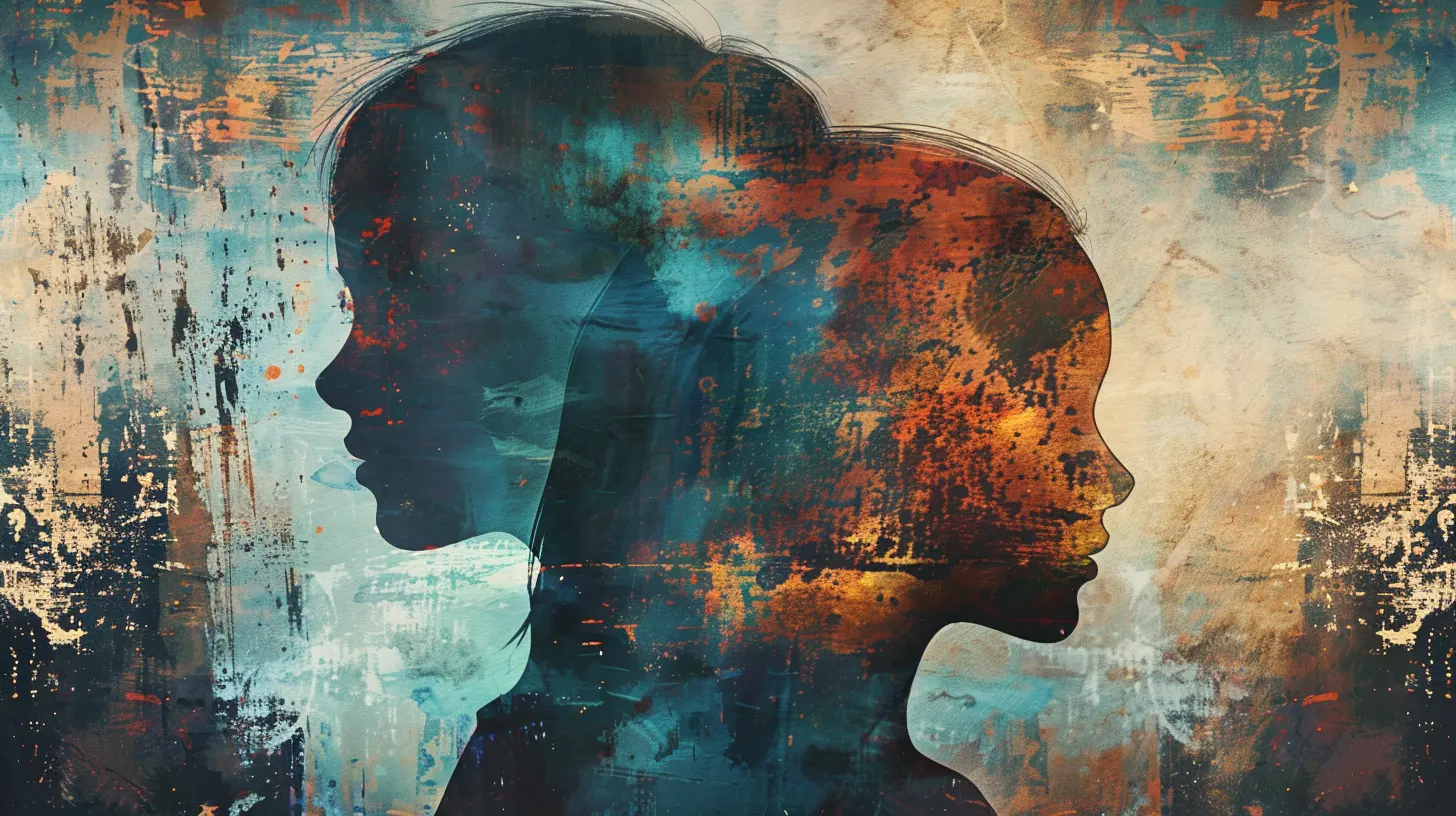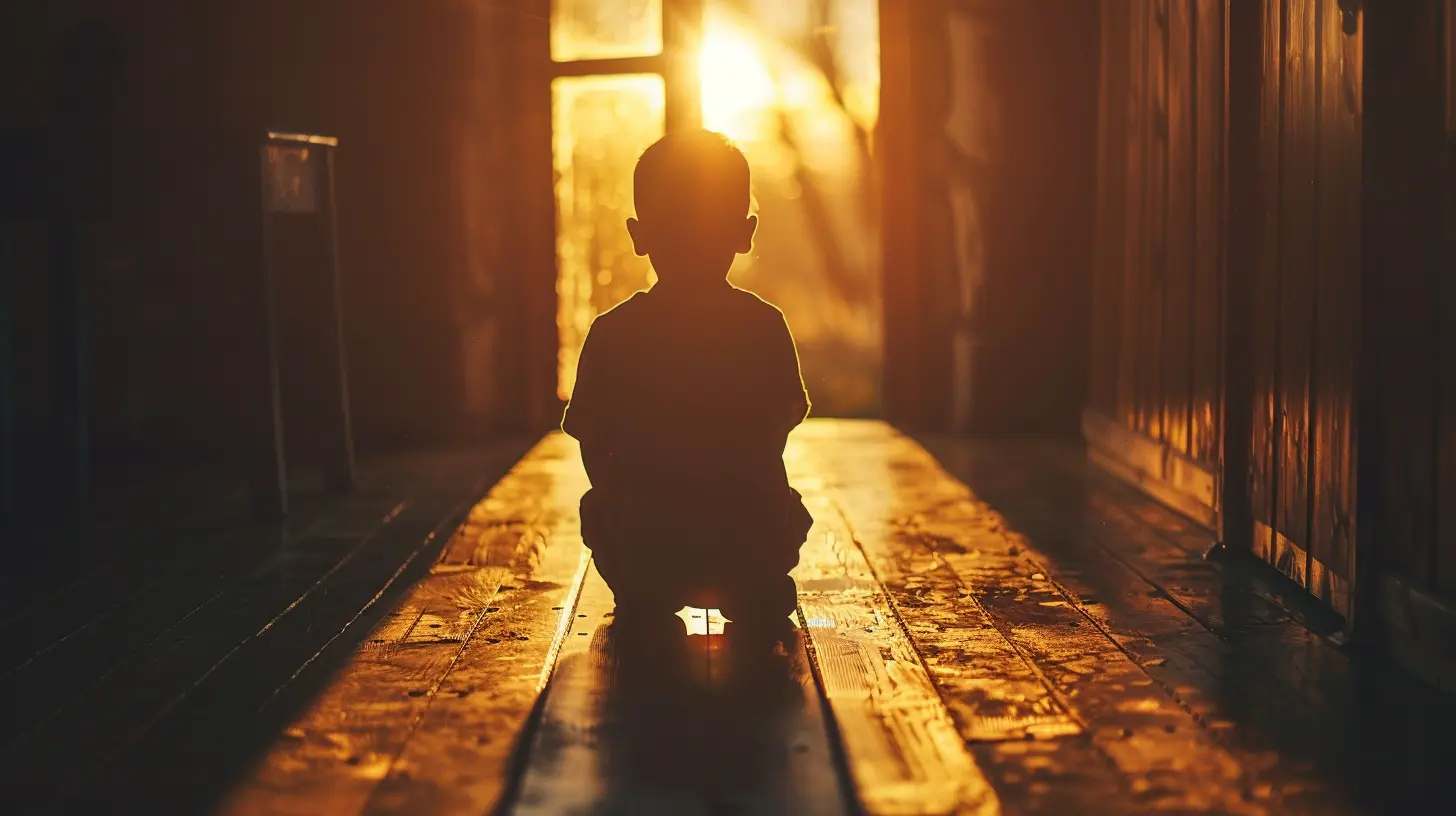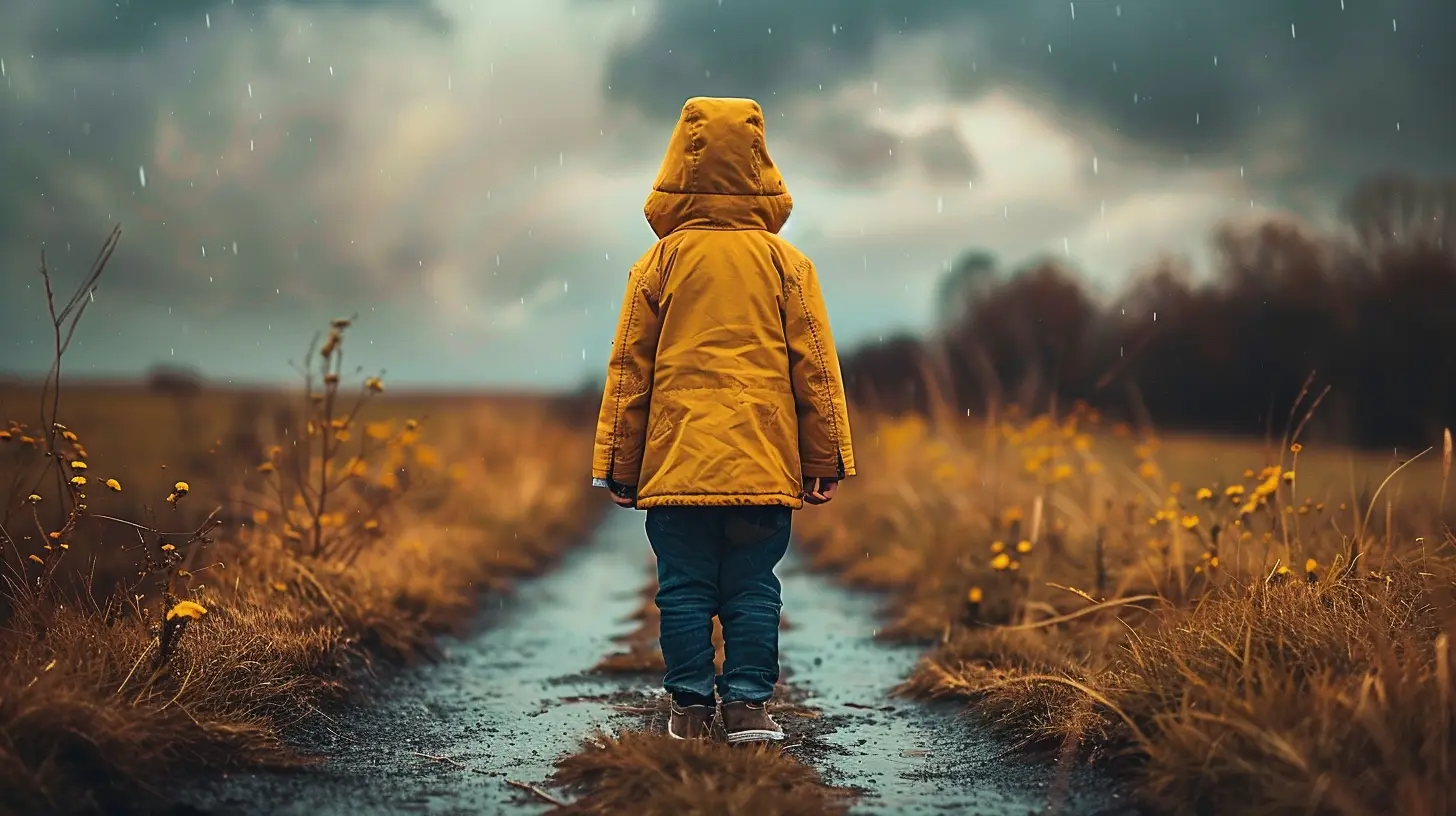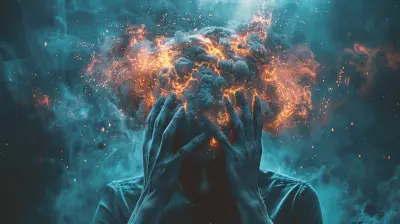Understanding the Link Between Childhood Trauma and Adult Behavior
16 August 2025
Let’s not sugarcoat it—childhood trauma is serious business. It’s not just some dramatic memory you brush off with a “That was a long time ago.” The truth is, what messed you up at five could still be whispering (or screaming) in your ear when you’re thirty-five. Understanding the link between childhood trauma and adult behavior isn't about digging up the past for fun; it's about recognizing patterns, breaking cycles, and—let’s be real—taking back your damn power.
But before you roll your eyes thinking this is just another sob story wrapped in psychology jargon, hold up. This isn’t just about trauma victims. This is about all of us. Because whether you had a toxic parent, faced neglect, or witnessed violence—you carry pieces of that into your adult relationships, your career, even your self-worth.
Let’s get into the gritty truth of how what happened back then can silently dominate your life now—and how to finally start flipping that script.
What Counts As Childhood Trauma?
You’d be surprised how often people downplay their childhood experience. “It wasn’t that bad,” or “That’s just how my parents were raised too.” Nope. Trauma isn’t about comparing wounds—it’s about the impact.Childhood trauma refers to any highly distressing event or repeated experience that overwhelms a child’s ability to cope. This includes (but is not limited to):
- Physical, emotional, or sexual abuse
- Neglect (yeah, ignoring a child can be as damaging as hurting them)
- Witnessing domestic violence
- Growing up with addiction in the household
- Exposure to mental illness
- Loss of a parent through divorce, death, or abandonment
Don’t think you escaped unscathed because no one hit you. Trauma isn’t always physical—it’s emotional, psychological, and even spiritual. And it doesn’t just go away on its own with time.
The Brain Remembers What the Mind Tries to Forget
Here’s where it gets wild—the body and brain internalize trauma in ways we don’t even realize. Childhood is the most crucial time for brain development. When you're constantly in fight-or-flight mode, your brain adapts to keep you safe. Problem is, those adaptations stick around long after the danger is gone.That means:
- Oversensitivity to stress? Yep, that’s your amygdala (the brain’s fear center) on high alert.
- Difficulty regulating emotions? Blame the underdeveloped prefrontal cortex.
- Trust issues? Emotional shutdown? Hyper-independence? Trauma responses, every one of them.
Your nervous system basically got reprogrammed to survive chaos—and now it reacts to everyday life like it's still in the battlefield.
How Childhood Trauma Shows Up in Adulthood (You Might Not Even Know It)
So you’re grown now. Bills, jobs, relationships. Surely you’ve outgrown those past wounds, right?Not quite.
Childhood trauma doesn’t knock on your door as “hello, I’m trauma.” It shows up like:
1. Toxic Relationship Patterns
You constantly attract partners who are emotionally unavailable, controlling, or abusive. Sound familiar? That’s not coincidence; that’s conditioning. What felt “normal” in childhood (even if it was unhealthy) feels familiar in adulthood—and familiarity feels safe, even when it’s not.2. People-Pleasing and Perfectionism
Were you expected to earn love as a kid? Maybe you had to behave perfectly to avoid punishment, or maybe your parents only praised you when you achieved something. Now you bend over backward trying to make everyone happy—even if it wrecks you.3. Fear of Abandonment
Maybe someone literally left. Or maybe they were physically there but emotionally MIA. Either way, the result is often clingy attachment, jealousy, and anxiety in relationships. You’re not “needy”—you’re scared. And that’s valid.4. Low Self-Worth
Constant criticism or emotional neglect teaches kids one brutal lie: “You’re not enough.” That belief can fester and mutate into imposter syndrome, self-sabotage, or an inability to accept love.5. Struggles with Boundaries
If no one respected your boundaries as a child, good luck setting them now without guilt. Trauma survivors often either have no boundaries or build walls so high no one can get in.6. Addiction and Compulsive Behaviors
Sometimes, you just want to numb the pain. Alcohol, drugs, sex, gambling, binge-eating—these aren’t “bad habits.” They’re survival strategies gone rogue.
Okay, So Why Does This Happen? (The Psychology Behind the Pain)
Let’s break it down.A child’s brain is like wet cement—it’s impressionable. Every experience shapes how the brain wires itself. In a stable, loving environment, that wiring supports self-confidence, empathy, and healthy communication.
In a traumatic environment? The wiring gets funky. That’s when the limbic system (emotion central) starts calling the shots. Over time, childhood trauma can lead to:
- Complex PTSD (C-PTSD): Not just flashbacks, but emotional flashbacks—where emotions from the past hijack your present.
- Attachment disorders: These affect how you connect with people. You might avoid intimacy or be terrified of losing it.
- Anxiety and depression: Chronic stress rewires your brain chemistry—hello serotonin and dopamine imbalances.
Simply put: If your home wasn't safe, your mind learned to always stay on edge.
Can You Heal? Hell Yes—But It Takes Work
Dealing with childhood trauma as an adult isn’t about blaming your parents till the end of time. It’s about taking your pain seriously, validating your experience, and then doing the inner work to heal.Here’s where to start:
1. Therapy (No Shame in the Game)
Trauma-informed therapists can literally change lives. Don’t settle for just any counselor—look for someone who understands how trauma messes with the brain and behavior.Cognitive behavioral therapy (CBT)? Great for reframing toxic thoughts. EMDR? A game-changer for serious trauma. Inner child work? Yeah, it gets emotional, but it’s powerful.
2. Establishing Safety and Routine
Trauma thrives in chaos. Healing thrives in predictability. Create safe routines. Sleep well. Eat regularly. Exercise. It’s not boring—it’s basic mental health hygiene.3. Reparenting Yourself
This is about giving yourself the love and support you didn’t get as a child. Speak to yourself kindly. Make room for mistakes. Celebrate small wins. Say no when you need to. Sound cheesy? Maybe. But damn, it works.4. Setting Boundaries (And Actually Respecting Them)
You HAVE to reclaim your power. That means saying no without explaining yourself. Cutting off toxic people. Giving yourself permission to not be available 24/7.5. Build a New Narrative
You are not broken. You are not your trauma. You are not doomed to repeat your childhood in every relationship. But you do have a responsibility—to yourself—to break the pattern. That starts now.What If You’re in a Relationship with Someone Who Has Childhood Trauma?
Oh boy, buckle up. Loving someone with trauma is like loving someone with invisible scars. You won’t always see what triggers them, but you’ll definitely feel the aftermath.Here’s what helps:
- Be patient, not patronizing.
- Don’t take their reactions personally.
- Encourage therapy but don’t try to be their therapist.
- Respect their need for space and boundaries.
Most importantly, educate yourself. Trauma-informed relationships aren’t about fixing each other. They're about offering safe space to grow and support.
Breaking the Cycle for the Next Generation
If you’re a parent, this part’s for you. Your healing is your child’s blueprint. Want to raise emotionally intelligent, confident children? Start with yourself.Don’t pass the trauma torch. Break that generational cycle by:
- Apologizing when you mess up
- Validating your child’s feelings (even if you don’t understand them)
- Prioritizing emotional connection over control
- Teaching boundaries by modeling them
Healing doesn’t just stop with you—it echoes through generations.
Final Thoughts: You Deserve Peace
Let’s be brutally honest here—healing childhood trauma isn’t cute and aesthetic like it looks on Instagram. It’s ugly crying, unlearning your defense mechanisms, and showing up for yourself when everything in you wants to run.But here’s the truth: You are not weak for being wounded. You are powerful for facing your pain and choosing to transform it. Understanding the link between childhood trauma and adult behavior isn’t just a topic—it’s a damn revolution.
So whether you’re knee-deep in healing, just starting to question stuff, or still haunted by things you can’t explain—know this: you’re not crazy, you’re not alone, and it’s not too late.
You can change the story. You can create your own ending. And it starts with finally daring to look at the beginning.
all images in this post were generated using AI tools
Category:
ParentingAuthor:

Jenna Richardson
Discussion
rate this article
1 comments
Indie Barker
In shadows of youth, echoes reside, Wounds once tender shape whom we bide. With insight's light, we gently trace, The roots of sorrow, the paths we face. Healing begins where understanding flows, In the heart's tender garden, true growth shows.
September 3, 2025 at 3:49 AM

Jenna Richardson
Thank you for your thoughtful reflection! You've beautifully captured the essence of how childhood experiences shape our adult lives and the importance of healing through understanding.


